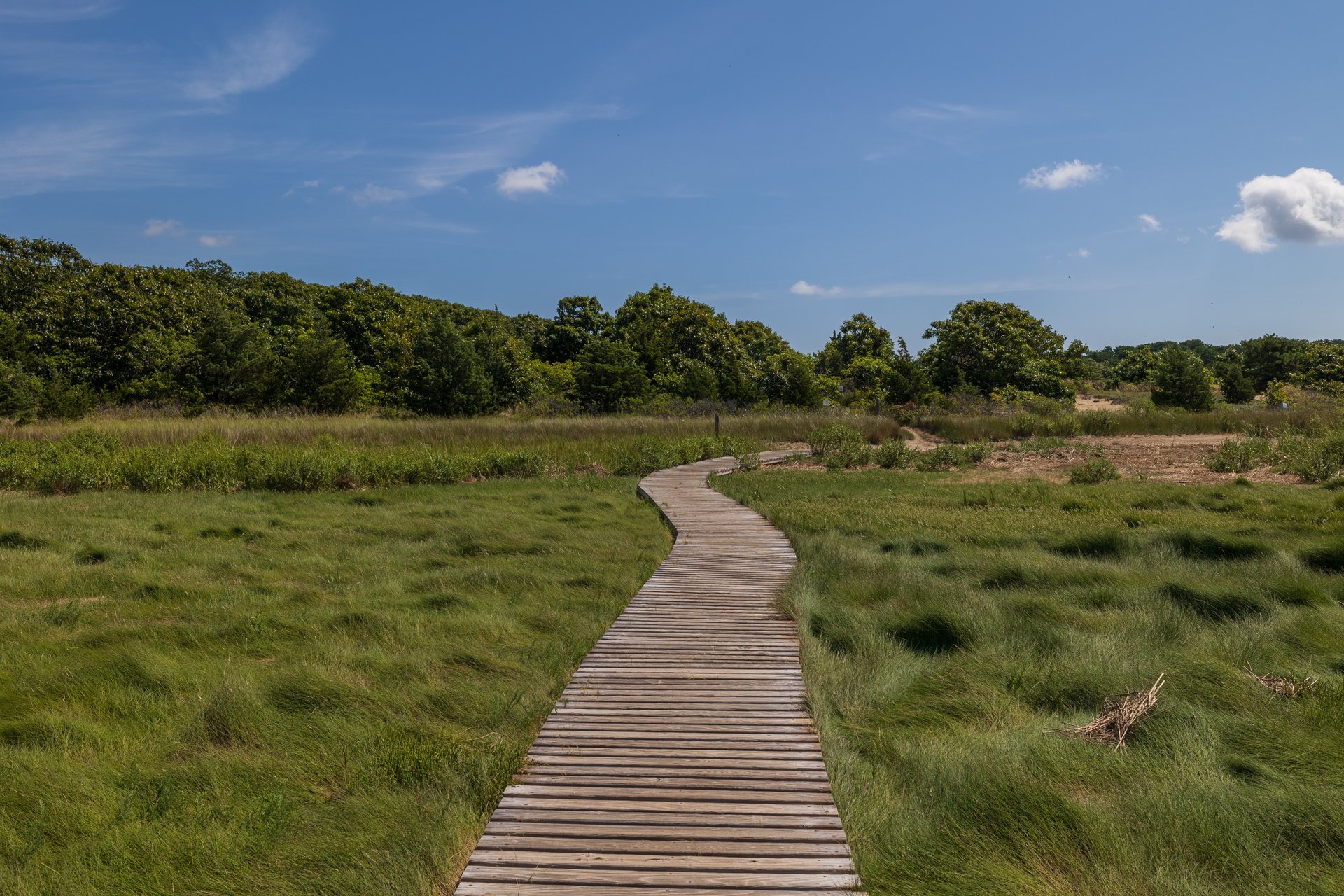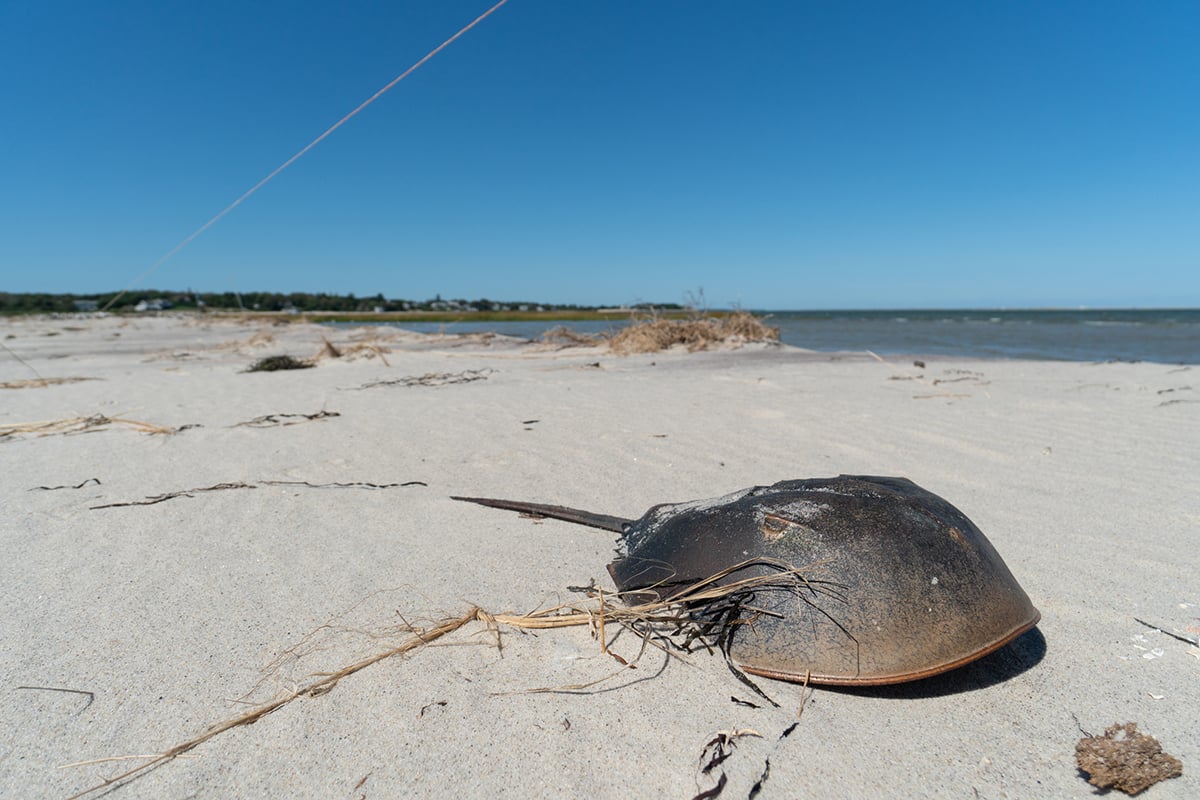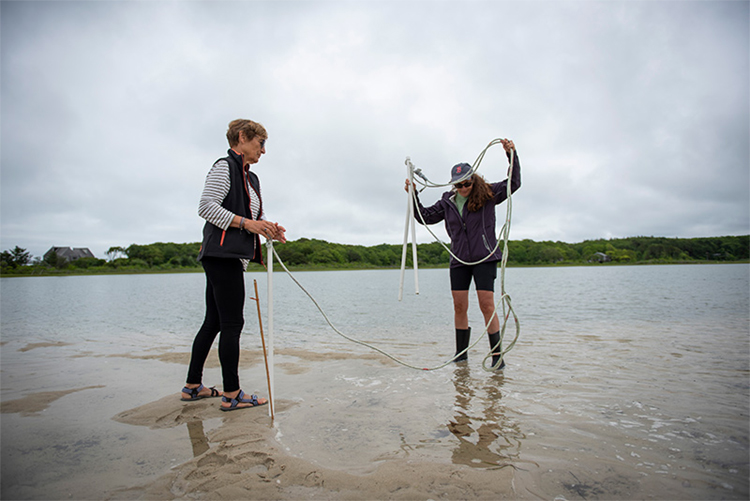Horseshoe Crab Research at Wellfleet Bay
Horseshoe crabs (HSC) have been crawling ashore on Cape Cod to mate on full moon nights for about 350 million years, and Mass Audubon seeks to ensure this ancient rite of spring continues for the Atlantic horseshoe crab (Limulus polyphemus). However, increased harvesting of these fascinating animals threatens their population.
In Massachusetts, horseshoe crabs are harvested to be used as bait for the eel and conch fisheries. In addition, their blood is the source of a chemical used to test medical devices and injectable drugs for toxins. For this purpose, crabs are caught, bled, and then returned to the water.
Closures of the horseshoe crab fisheries in New Jersey, New York, and other neighboring states are expected to increase harvest pressure on dwindling populations of Massachusetts horseshoe crabs.
It is crucial that state managers have a robust estimate of the number of crabs in Massachusetts before they can set appropriate harvest quotas to ensure a sustainable fishery.
As a first response, the state has reduced the annual quota and prohibited harvests around the full moons from late April through June.
Research & Findings
Data collected by the Wellfleet Bay Wildlife Sanctuary and other collaborators indicate that these closures are not working and the horseshoe crab population continues to dwindle.
An analysis of Wellfleet Bay’s data indicates low and likely declining numbers of spawning crabs in Wellfleet Harbor. This report was presented to the Massachusetts Marine Fisheries Commission in support of a petition by Wellfleet’s shell fishing community to ban horseshoe crab harvest in Wellfleet.
In collaboration with the University of Rhode Island, the National Park Service, the Massachusetts Division of Marine Fisheries, and others, Mass Audubon also surveys spawning horseshoe crabs on the Outer Cape.
Throughout the Cape and Southeastern Massachusetts, scientists and volunteers count the number of adult spawning horseshoe crabs on and around the new and full moons at high tide.
Collaborators
National Park Service, University of Rhode Island, UMass Amherst, Massachusetts Division of Marine Fisheries, Worcester Polytechnic Institute, The Horseshoe Crab Conservation Association, Mass Bays Program, Provincetown Center for Coastal Studies, U.S. Fish and Wildlife Service, and many more.
Get Involved
We need your help! You can make a difference in the effort to preserve these very special creatures.
To sign up as a survey volunteer, please email us. Wellfleet Bay survey sites include Wellfleet Harbor, Nauset Estuary, and Pleasant Bay.





